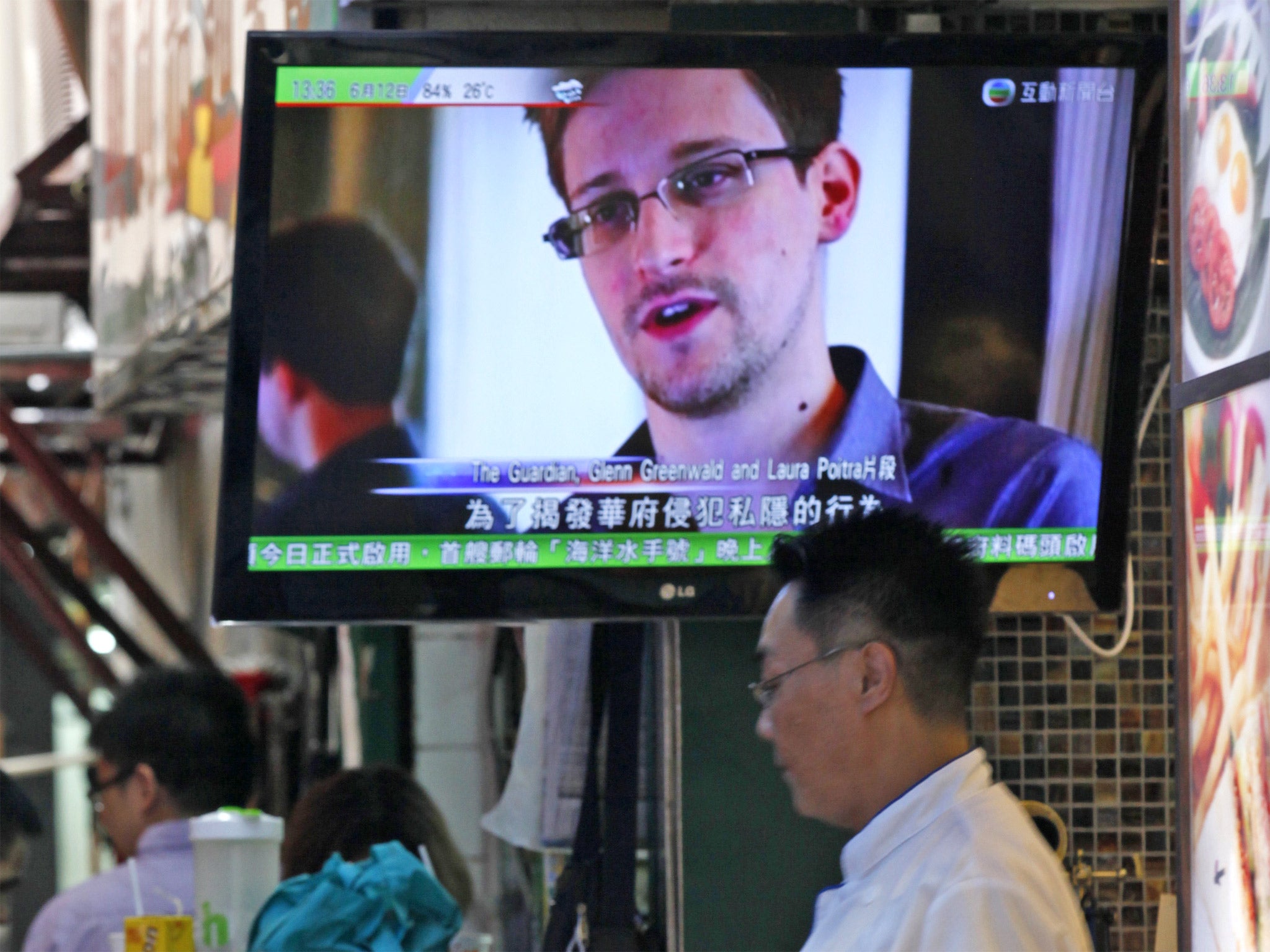The Independent's journalism is supported by our readers. When you purchase through links on our site, we may earn commission.
Edward Snowden reminds us just how vital whistleblowers are to a healthy society
The least we can do is protest the mistreatment of these figures who tell us what we need to know

On the face of it, barring the discovery of as yet unknown motives, it would seem that the whistleblower behind the biggest leak in the history of the National Security Agency (the NSA) is a person of extraordinary courage and heroism.
His actions, for which he has sacrificed contact with family and friends as well as the prospect of returning to his homeland anytime soon, have thrown a light on practices that are a bitter affront to liberty. He has exposed programmes that ought to be centre-stage in any meaningful debate about the health of western democracy, let alone civil freedoms. We should be enormously grateful for such efforts.
Whistleblowers like Edward Snowden have come to occupy the role of informants to a citizenry excluded from access to vital information on practices undertaken in their name, with their tax money and, many would argue, against their interests. They open doors to accountability. Calls for Snowden to be extradited on the basis that he has broken the law should be judged against these considerations.
Indeed, it is a familiar resort of governments under fire to emphasize the offences of their antagonists in an attempt to efface their own. Yet Washington cannot cry foul over the illegality of Snowden’s actions without engaging in mordant self-ridicule, like Syria condemning other countries for their war crimes. This is not least because the programmes exposed by Snowden appear to be operating unconstitutionally on a grand scale.
As Glenn Greenwald asked on his Twitter account: ‘If everyone is so sure this spying is legal, why does Obama [‘s] [Department of Justice] keep preventing federal courts from ruling on its constitutionality?’
It is a pertinent question. Such reluctance may have something to do with the fact that, according to the invaluable Electronic Freedom Foundation (EFF), a secret Foreign Intelligence Surveillance Court (FISC) opinion on relevant NSA activities found them to be unconstitutional.
Predictably the documents pertaining to this high-level assessment have been kept out of the public eye. EFF reports that the analysis "found the National Security Agency's surveillance under the FISA Amendments Act …violated the Fourth Amendment's prohibition on unreasonable searches and seizures". It further observed that "the surveillance at issue was carried out under the same controversial legal authority that underlies the NSA’s recently-revealed PRISM program." As we know now, PRISM is the electronic surveillance programme allegedly used by US intelligence to collect vast amounts of user data ‘direct from the servers’ of major net companies. The phrase "those who have nothing to hide, have nothing to fear" comes to mind, although not in the usual context.
While Mr Hague and his American counterparts have made assurances to the public in the aftermath of this week’s revelations, grounds for concern remain. Hague, for example, appeared to deny claims that Britain circumvented its own laws by making use of intelligence acquired through PRISM. But documents revealed by the Guardian indicate that the US has been sharing material from PRISM with the UK since 2010. Is someone lying, misinformed or can both somehow statements be technically true? The Foreign Secretary refused to be drawn on details in the commons recently.
However, former Home Secretary David Blunkett appeared to lay out how the UK could gain such data without violating legal safeguards- by being offered the information, rather than requesting it. In any case, even if such activities have not happened yet, they could at any point in the future.
Setting the above aside, the sheer size of the data sweeps revealed to have been conducted should prompt public concern. Snowden’s fellow ex-NSA whistleblower William Binney has claimed that the intelligence community in the United States are developing profiles ‘of everybody in the country’ using surveillance programmes and powerful software. Binney alleges that by using these resources the authorities can scan up to 100 billion emails a day as well as capture other private online material- and send them away for analysis and storage. Yet another NSA whistleblower, Thomas Drake, has averred that Snowden has merely exposed ‘the tip of the iceberg’ regarding state surveillance and stressed that, based on his experience, the NSA sought to ‘own the net’ by creating a virtual ‘panopticon’ that collected as much data as it possibly could, on everyone it could.
Looking at what we do know, given that it has been reported that PRISM allows for the collection of data ‘including search history, the content of emails, file transfers and live chats’- the programme could potentially collect all sorts of private material for political intelligence purposes. The US government has abused its surveillance powers before, while Britain has had its own issues also. Commensurate with the enormous expansion of this very capacity, the potential for improper use is greater now than ever- as a result, it is in all of our interests to demand new, tough oversight mechanisms to prevent such practices.
Sadly, protections of this sort do not appear to be forthcoming. As long as this is so, it largely remains the role of whistleblowers to tell us what we ought to know. When they do so only to get crucified by the state, as Snowden may well be yet and Bradley Manning certainly has been, it is the least that we can do to protest their mistreatment, while standing up to reclaim the liberties they sacrificed their freedom to defend.
Join our commenting forum
Join thought-provoking conversations, follow other Independent readers and see their replies
Comments
Bookmark popover
Removed from bookmarks